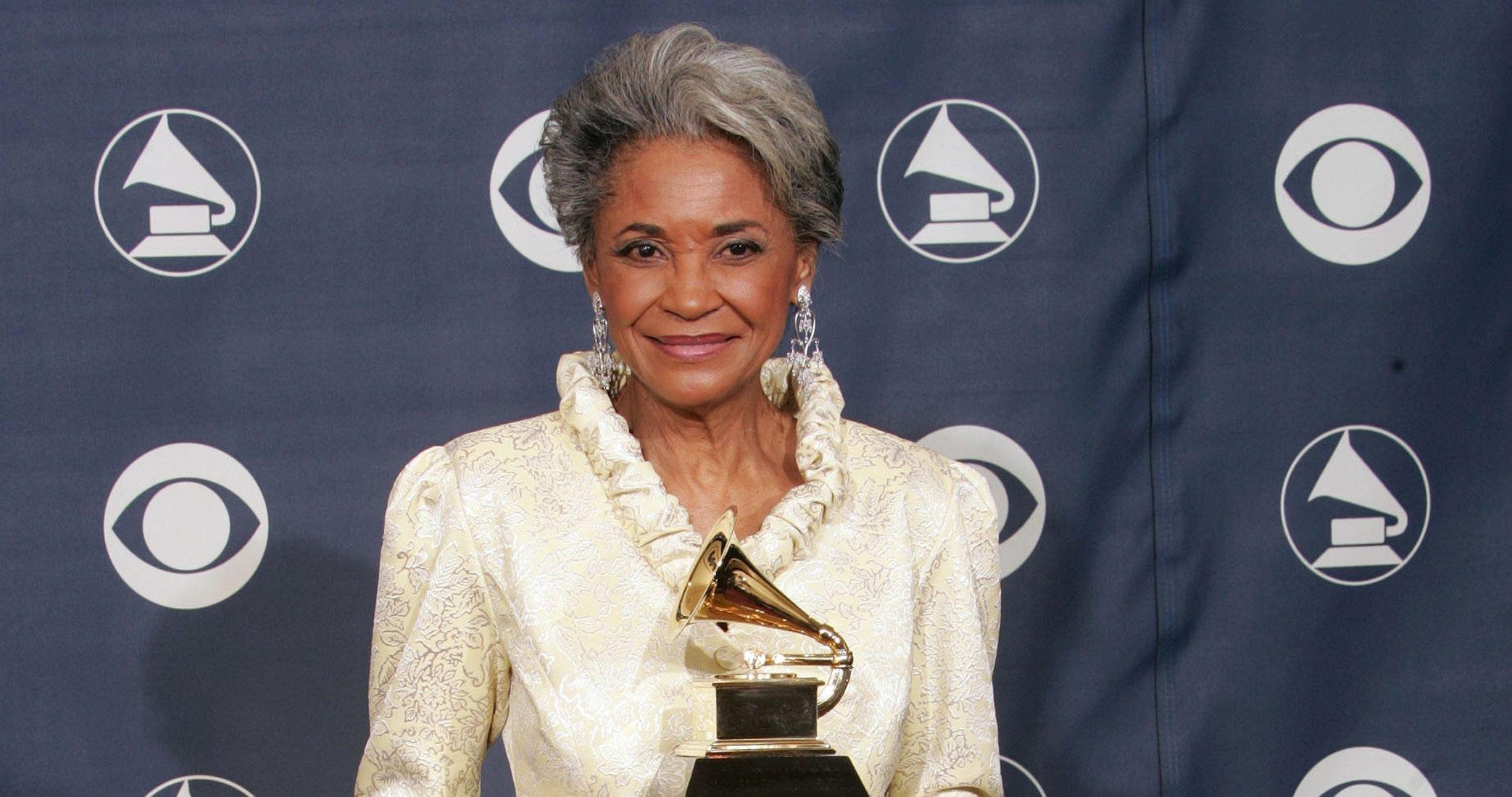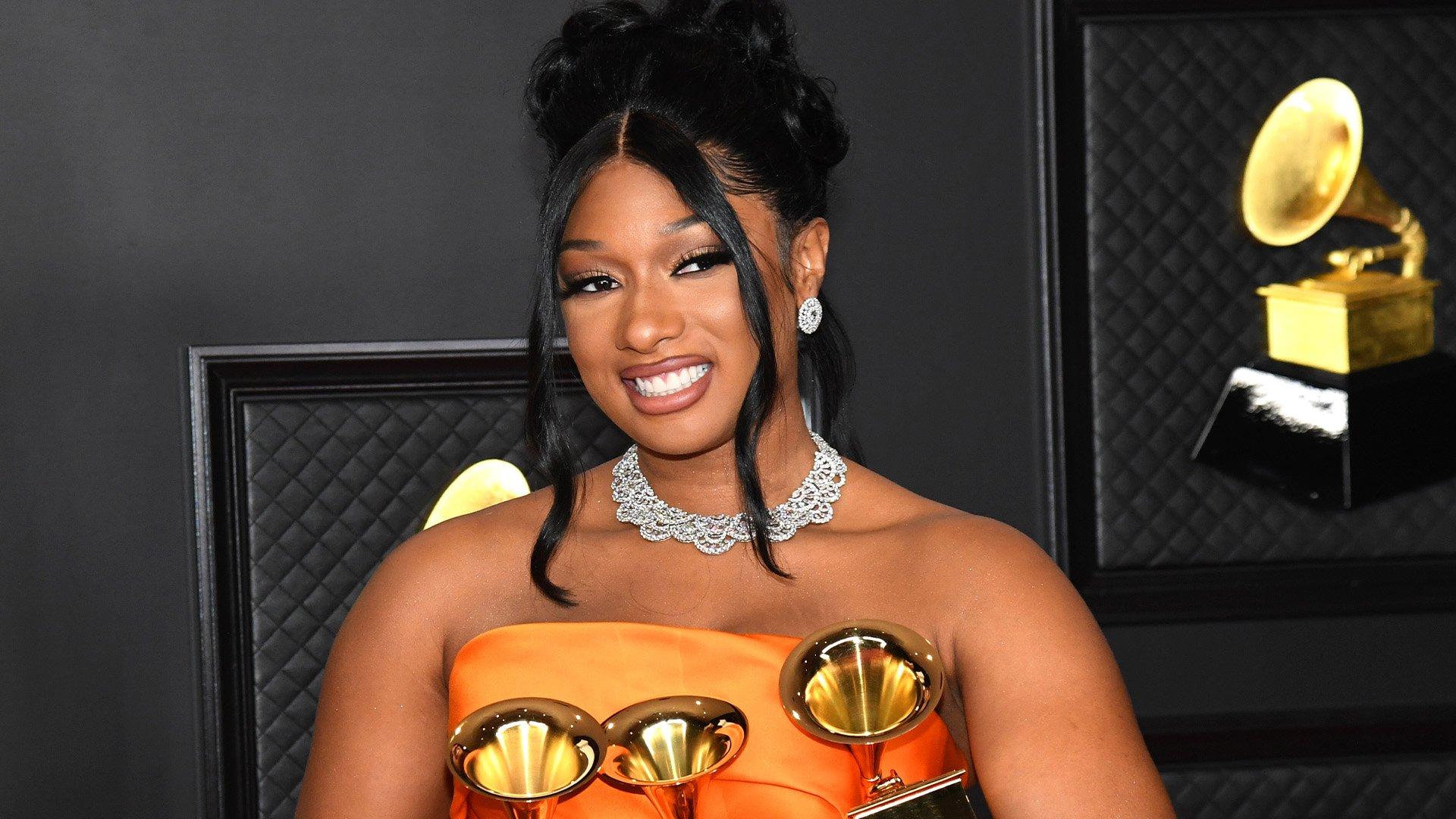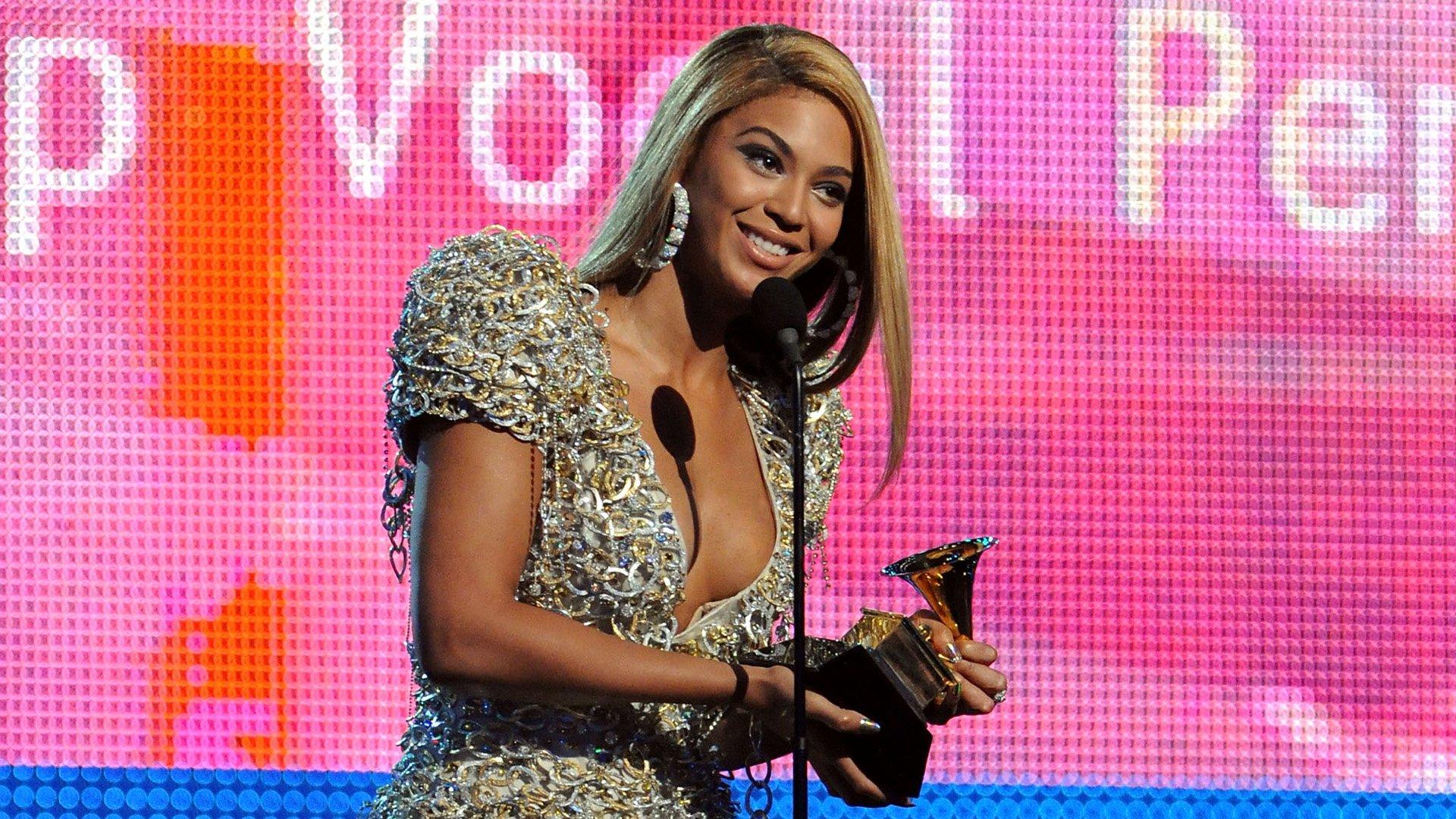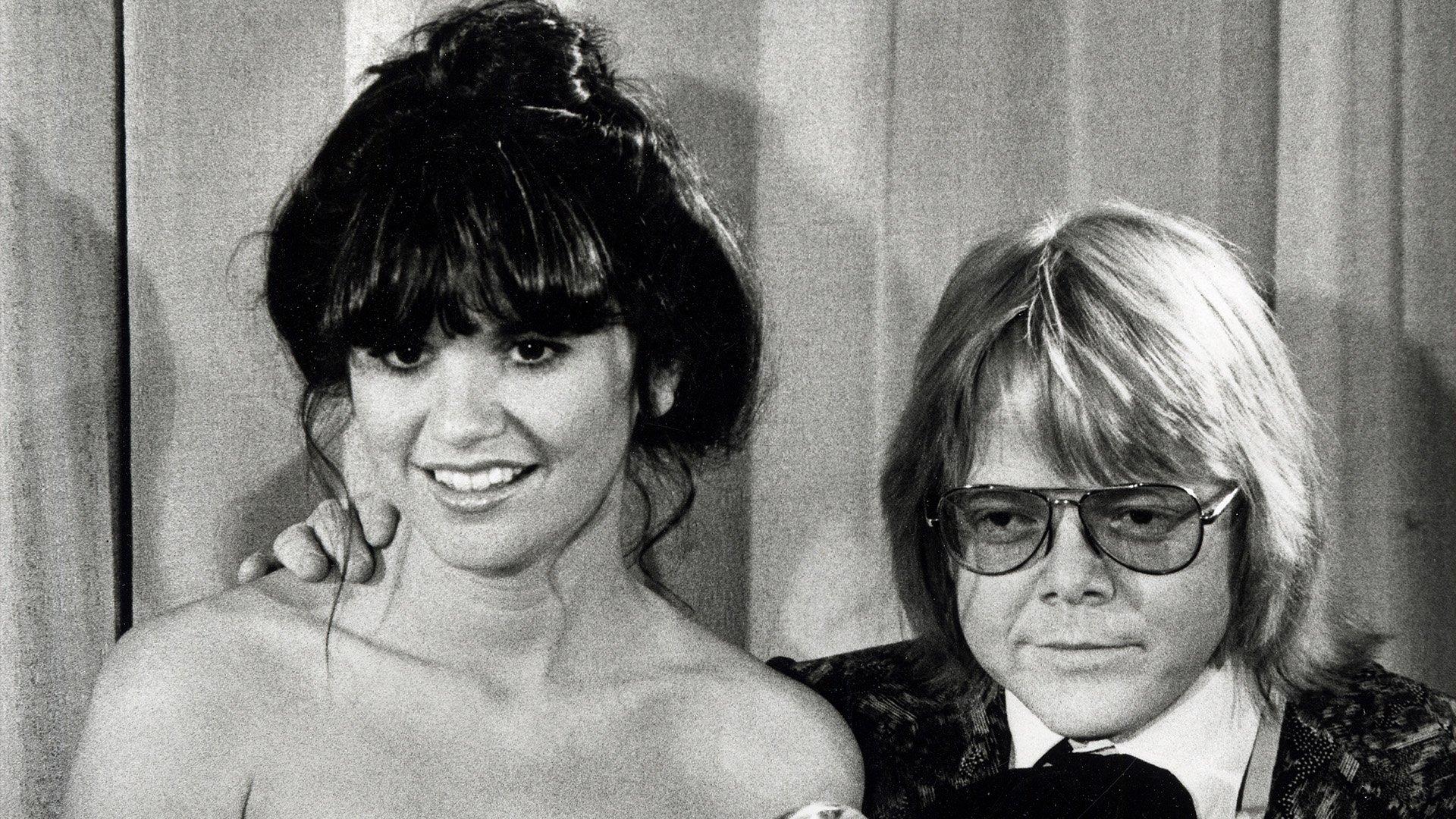"I only make records when I feel I have something to say," Sade Adu asserted in 2010 upon the highly anticipated release of Sade's GRAMMY-winning Soldier of Love album, which arrived after a 10-year hiatus. "I'm not interested in releasing music just for the sake of selling something. Sade is not a brand."
This lifetime of dedication toward achieving musical excellence helped Sade — vocalist Adu, bassist Paul S. Denman, keyboardist Andrew Hale, and guitarist/saxophonist Stuart Matthewman — gain prominence in the mid-80s, also garnering enormous respect from fans, critics, and peers alike. Formed in 1982, the English band is one of the few acts that can still be met with a hungry audience after disappearing from the spotlight for multiple years.
In an industry where churning out a new body of work is expected every couple of years, the four meticulous members of Sade move on their own time, putting out a mere six studio albums since 1984. Every project becomes more exquisite than the last, but it all began 40 years ago with Sade's illustrious debut album, Diamond Life. Ubiquitous hits like "Smooth Operator" and "Your Love Is King" appealed to listeners young and old — offering a unique blend of R&B, jazz, soul, funk, and pop that birthed a new sound and forced the industry to take notes from the jump.
As Sade's Diamond Life celebrates a milestone anniversary, here's a look at how the album helped push R&B forward, and why it's just as relevant today.
It Helped Set Off The "Quiet Storm" Craze
By mid-1984, Michael Jackson, was riding high off of winning the most GRAMMYs in a single night (including Album Of The Year) for his blockbuster album Thriller, Madonna celebrated her first top 10 hit with "Borderline," and Prince's Purple Rain was just days away from its theatrical release. Duran Duran, Culture Club, Billy Idol, and the Police were mainstays, while "blue-eyed soul" in particular had also hit an all-time high thanks to Hall and Oates, Wham, Simply Red, and others. What's more, many Black artists like Lionel Richie and Whitney Houston opted for more of a pop sound to appeal to broader audiences during MTV's golden era.
Diamond Life was refreshing at the time, as it fully embraced soul and R&B. The album offered a chic sophistication amid the synth-heavy pop and rock music that ruled the charts.
Singles like "Your Love Is King" and "Smooth Operator" introduced jazz elements into mainstream radio. In turn, Sade helped usher in the "quiet storm" genre — R&B music at its core, with strong undertones of jazz for an ultra-smooth sound. Sade and Diamond Life also laid some of the groundwork for neo-soul, which saw a surge in the '90s à la Lauryn Hill, Maxwell, and Erykah Badu.
It Made GRAMMY History
In the 65-year history of the GRAMMYs, a small number of Nigerian artists, including Burna Boy and Tems, have won a golden gramophone. In 1986, a then 27-year-old Sade Adu made history as the first-ever Nigerian-born artist to win a GRAMMY when she and her band was crowned Best New Artist at the 29th GRAMMYs. Still, Billy Crystal and Whoopi Goldberg had to accept the award on Sade's behalf — signaling Adu's elusive nature as she rarely attends industry events or grants interviews.
Since then, Sade has gone on to earn three more GRAMMYs, including Best Pop Vocal Album in 2001 for their fifth studio album, Lovers Rock. The win signified their staying power in the new millennium.
It Birthed The Band's Signature Song…
While Diamond Life spawned timeless hits like "Your Love Is King" and "Hang On to Your Love," "Smooth Operator" became the album's highest-charting single — and remains the most iconic song in their catalog. The seductive track about a cunning two-timer propelled the band into international stardom: "Smooth Operator" skyrocketed to No. 5 on the Billboard Hot 100 and hit No. 1 on the Adult Contemporary chart.
Even non-Sade fans can identify "Smooth Operator" in an instant, from Adu's unmistakable vocals to that now-iconic instrumental saxophone solo. As of press time, it boasts over 400 million Spotify streams alone, and has remained a set list staple across every one of Sade's tours.
…And It Houses Underrated Gems
"Smooth Operator" may be Sade's commercial classic, but deep cuts like "Frankie's First Affair," "Cherry Pie," and "I Will Be Your Friend" are fan favorites that embody the band's heart and soul.
"Frankie's First Affair" offers a surprisingly enchanting take on infidelity: "Frankie, didn't I tell you, you've got the world in the palm of your hand/ Frankie, didn't I tell you they're running at your command." And, it's impossible to resist the funky groove that carries standout track "Cherry Pie," which served as a catalyst for some of Sade's later, more dance-oriented hits, including "Never As Good As the First Time" and "Paradise." Some of Sade's most poignant statements about lost love, including "Somebody Already Broke My Heart" from 2000's Lovers Rock, can be traced back to "Cherry Pie."
Diamond Life's penultimate song, "I Will Be Your Friend," offers both solace and companionship — another recurring theme throughout Sade's music, from 1988's "Keep Looking" to 2010's "In Another Time."
It Was The Best-Selling Debut Album By A British Female Singer For More Than Two Decades
Sade has sold tens of millions of albums worldwide, but Diamond Life remains the band's most commercially successful LP with over 7 million copies sold. Most of Sade's other platinum-selling LPs, including Diamond Life's follow-up, 1985's Promise, boast sales between four and six million copies.
The 7 million feat helped Sade set the record for best-selling debut album by a British female singer. She held the title for nearly 25 years until Leona Lewis' 2008 album Spirit, which has sold over 8 million copies globally.
It Introduced Sade Adu As A Style Icon
When we first met Adu, her signature aesthetic consisted of a long, slicked-back ponytail, red lip, and gold hoops. Sade's impeccable style is front and center in early videos like "When Am I Going to Make a Living," in which she sports an all-white ensemble paired with a pale gray, ankle-length trench coat and loafers.
Adu rocked the model off-duty style long before it became a trend. Her oversized blazers, classic trousers, and head-to-toe denim looks were as effortless as they were chic and runway-ready — proving that less was more amid the decade of excess.
"It's now so acceptable to be wacky and have hair that goes in 101 directions and has several colours, and trendy, wacky clothes have become so acceptable that they're… conventional," Adu, who briefly worked as a fashion designer and model before pursuing music, told Rolling Stone in 1985. "I don't like looking outrageous. I don't want to look like everybody else."
It Shined A Light On Larger Societal Issues
While most of Diamond Life leans into love's ebbs and flows, a handful of tunes deal with financial strife coupled with a dose of optimism, as evidenced by "When Am I Going to Make a Living" and "Sally." The latter song characterizes the Salvation Army as a young charitable woman: "So put your hands together for Sally/ She's the one who cared for him/ Put your hands together for Sally/ She was there when his luck was running thin."
Meanwhile, Adu, a then-starving artist, scribbled down portions of "When Am I Going to Make a Living" on the back of her cleaning ticket. The soul-stirring "We are hungry, but we won't give in" refrain emerges as a powerful mantra in the face of adversity and still holds relevance in 2024. Similar themes appear throughout Sade's later work, including unemployment ("Feel No Pain"), unwanted pregnancy ("Tar Baby"), survival ("Jezebel"), prejudice ("Immigrant"), and injustice ("Slave Song").
Diamond Life closer "Why Can't We Live Together" is a well-done cover of Timmy Thomas' 1972 hit about the staggering Vietnam War deaths. The band wisely doesn't veer too far from the original recording, but Adu's distinctive contralto voice brings a haunting quality that's reminiscent of Billie Holiday.
It Ignited The Public's Ongoing Fascination With Sade Adu
Since 1984, Sade has only released six studio albums, and a remarkable 14 years have passed since the group's last offering, 2010's Soldier of Love. Ironically, that scarcity — both in terms of music and access to the artist — has actually added to Adu's appeal. Case in point: Sade's sold-out Soldier of Love Tour grossed over $50 million in 2011, and the band still brings in close to 14 million monthly listeners on Spotify.
Adu's striking beauty, mysterious persona, and knack for letting her music do all the talking has earned the admiration of her peers across genres and generations. Everyone from Beyoncé to Kanye West to Snoop Dogg have sung her praises. Drake even has two portrait-style tattoos of the singer on his torso. Prince reportedly described 1988's "Love Is Stronger Than Pride" as "one of the most beautiful songs ever." Metalheads Chino Moreno of the Deftones and Greg Puciato of the Dillinger Escape Plan have also cited Adu as inspiration — showing that her influence runs far and wide.
In 2022, reports circulated that Sade was recording new music at Miraval Studios in France. But upon Diamond Life's 40th anniversary, "Flower of the Universe" and "The Big Unknown" from the respective soundtracks to 2018 films A Wrinkle in Time and Widows stand as Sade's latest releases.
Whether fans get new music anytime soon remains to be seen, but the impressive repertoire of Adu, Denman, Hale, and Matthewman is one that aims to be truth-seeking and inspiring while exploring life's peaks and valleys. Diamond Life in particular holds up as one of the purest representations of the group's creative legacy, both commercially and musically.
From quadruple platinum status to resonating with several generations, Diamond Life will forever stand as a remarkable debut — one that continues to influence music in a multitude of ways.
Latest News & Exclusive Videos













